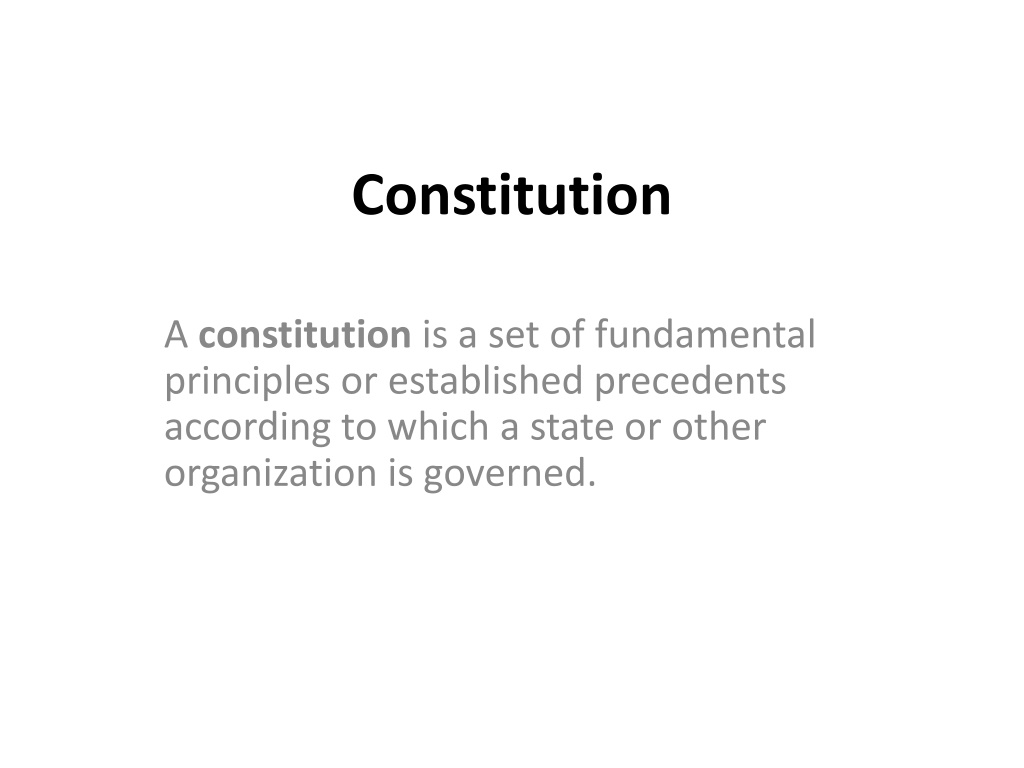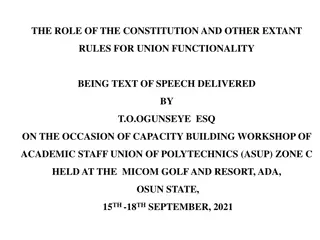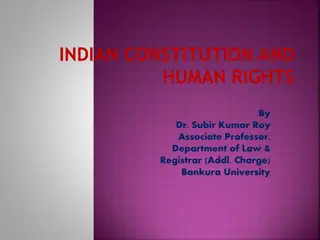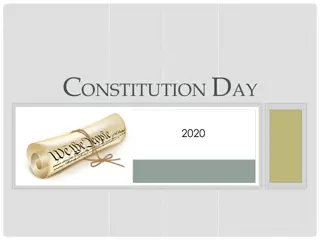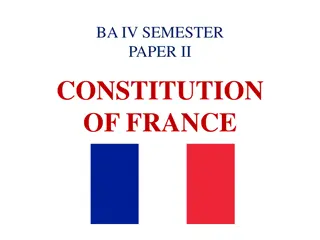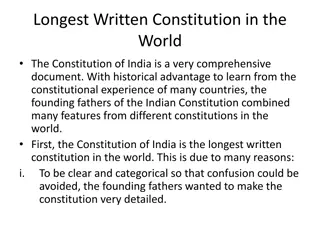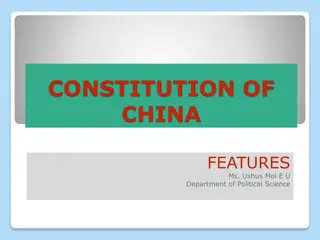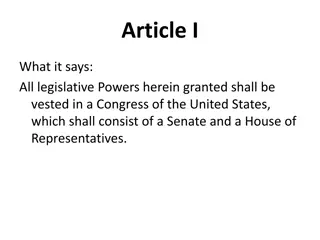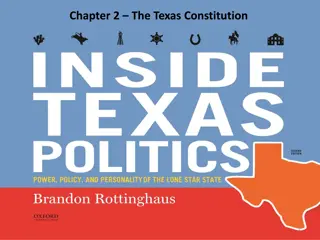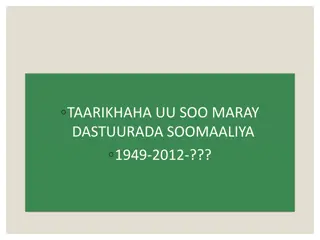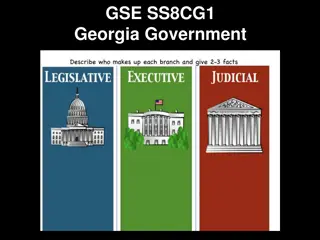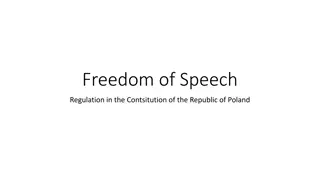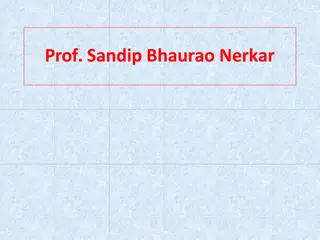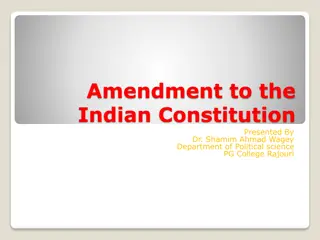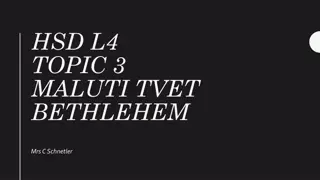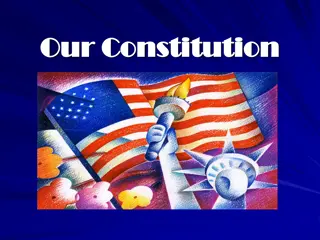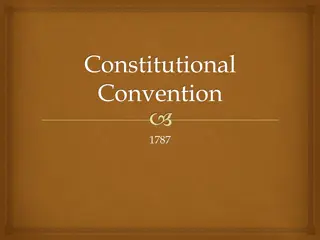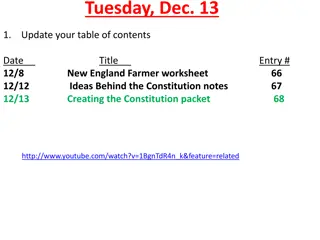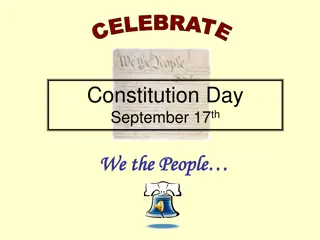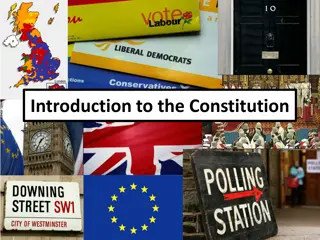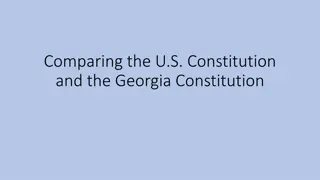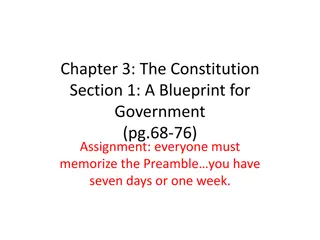Constitution
This content delves into the constitutional structures of India, the United States, and Pakistan. It discusses key aspects such as the length of the constitutions, historical evolution, amendments, and fundamental rights enshrined within them. The focus is on providing insights into the unique characteristics of each country's constitution.
Uploaded on Mar 05, 2025 | 0 Views
Download Presentation

Please find below an Image/Link to download the presentation.
The content on the website is provided AS IS for your information and personal use only. It may not be sold, licensed, or shared on other websites without obtaining consent from the author.If you encounter any issues during the download, it is possible that the publisher has removed the file from their server.
You are allowed to download the files provided on this website for personal or commercial use, subject to the condition that they are used lawfully. All files are the property of their respective owners.
The content on the website is provided AS IS for your information and personal use only. It may not be sold, licensed, or shared on other websites without obtaining consent from the author.
E N D
Presentation Transcript
Constitution A constitution is a set of fundamental principles or established precedents according to which a state or other organization is governed.
Constitution Longest written constitution of India containing 444 articles in 22 parts, 12 schedules and 118 amendments, while the United States Constitution is the shortest written constitution, at 7 articles and 27 amendments
The Constitution of the Islamic Republic of Pakistan The supreme law of the State of Pakistan Was approved by the legislative assembly on April 10 and ratified on 14 August 1973
History Constitution of 1956 - March 1956 The Constitution of 1962 - June 1962 The Constitution of 1973 - August 1973 Till date, there have been 20 amendments to the constitution
Fundamental Rights in The Constitution of Islamic Republic of Pakistan 1973 Chapter 1: Fundamental Rights, Articles 8 to 28 AND Masters of Public Administration
Fundamental Rights .. Laws contradictory with fundamental rights will be void Security of person
Fundamental Rights .. Safeguards as to arrest and detention Right to fair trial
Fundamental Rights .. Slavery, forced labour, etc. prohibited Protection against showing punishment
Fundamental Rights .. Protection against double punishment Holiness of dignity of man, etc.
Fundamental Rights .. Freedom of movement, etc. Freedom of assembly
Fundamental Rights .. Freedom of association Freedom of trade, business or profession
Fundamental Rights .. Freedom of speech, etc Right to information
Fundamental Rights .. Freedom to profess religion and to manage religious institutions Safeguard against taxation for purposes of any particular religion
Fundamental Rights .. Safeguards as to educational institutions in respect of religion, etc. Provision as to property.
Fundamental Rights .. Protection of property rights Equality of citizens
Fundamental Rights .. Right to education Non-discrimination in respect of access to public places
Fundamental Rights .. Safeguard against discrimination in services Preservation of language, script and culture
